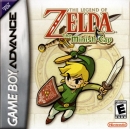I finished the final episode of The Walking Dead last night, and although I intend to replay the game to further collect my thoughts on it, I know already that it is not my favorite game of 2012. I just want to talk about where I think the game went wrong. In an effort to minimize spoilers, I won't describe specific characters or situations that could ruin plot developments, but I will be discussing aspects of the game that could spoil your experience with it if you have not yet played it. If you intend to play The Walking Dead (and I recommend it!), I suggest you at least complete Episode 3 before reading my analysis.
I'd like to emphasize that I'm not trying to create a negative impression of the game; I thought it was terrific, and I enjoyed it from start to finish. There is no shortage of praise for The Walking Dead to be found, and I agree with a lot of it, but not much will be found here.
Gameplay in The Walking Dead can be broken up into a few different segments: adventure segments, where you fully control the protagonist Lee, usually walking around and interacting with different objects and people; dialogue segments, where Lee is talking to another character and you must choose his responses; and action segments, where you must use quick reflexes, and often quick judgement, to advance the story or take control of a situation.
Adventure games usually focus on exploring your environment to overcome puzzle-like obstacles. Typically, you will be presented with a problem, and you must solve it by applying new logic to established mechanics, or by figuring out how to use an old tool for a new purpose. The Walking Dead is more concerned with exploring characters and their relationships than the environment you're in, which is an interesting take on the genre. The result is a game that feels more like a visual novel than an adventure game -- which may well have been the developers' intent, given the origins of the series. While the writing is superb, the gameplay suffers. The solution to any current (non-moral) dilemma is often so obvious that it requires little to no thought or effort to spot and execute. The right tool for the job is usually lying around in the open or directly mentioned by Lee or another character -- or both.
Rather than presenting the player with a single large, open world to explore, we are escorted from one small area to the next in a completely linear progression. This is absolutely perfect for the narrative and absolutely terrible for the gameplay. You won't have to look far for what you need, because you can't go far at all. No need to worry about what's around the corner; the solution is probably already right in front of you. In my opinion, this was a significant weakness of the game. I felt less like I was actually controlling Lee during these adventure segments and more like I was simply connecting the plot developments together. The moral dilemmas encountered in dialogue and action segments were much more compelling parts of the experience.
Simple issues kept breaking my immersion. Although he seemed to walk at different speeds depending on the scene, Lee never ran in-game, no matter how desperately he was searching or chasing. His slow movement speed was also a drag in the ocassional wider environments. At times, other characters seemed bipolar: one second they were Lee's best friend, recalling an earlier decision that I had made in their favor; the next, they would lash out about some other time I had betrayed their trust. My relationships with the cast, so vital to this game, felt inconsistent because of these oddities. I was constantly being reminded that the game was trying to construct a story as I played, not delivering a fully fleshed-out story.
Speaking of breaking immersion, let's return to my earlier segmentation of the gameplay. There are cues, perhaps subtle, perhaps not, that I picked up on quickly to determine which kind of gameplay segment I was in, and how important my current actions would be to the narrative. Generally, during adventure segments, your actions have no importance, because there is only one solution to each problem. The narrative is very linear during these segments, and because of this I did not feel very engaged during them. During dialogue segments, your choices are usually only important when a you are given a limited time to choose a response. At other times, you can generally cycle through every dialogue option with little or no consequence, as you would in any other adventure game. Those other times make up the bulk of dialogue gameplay in The Walking Dead, and serve only to flesh out the world and characters, not to influence them. The action segments are, again, only sometimes important. Sometimes you will be asked to make a split-second decision that will influence the game world; other times you are asked to nail a quick-time event to advance the plot.
Those quick-time events are another major weakness of The Walking Dead. You see, Lee and Clementine are both invincible. They cannot die in-game. If you make a mistake leading to the death of either character, you will be sent about 10 seconds back in time to the moment before they died to do it right. As soon as this becomes clear, half of the game's attempts at creating suspense become dull sequences of quick-time events. Either you kill this zombie, or the scene resets and you again attempt to kill this zombie. Make this jump, or fall to your death and immediately take the jump a second time. Death being a joke is practically expected in action-oriented games, but in a narrative-driven game like The Walking Dead, it hurts immersion to have no penalty for failure.
A final warning: stop here if you don't want to spoil your experience with this game. Again, I will not be specific, but the concept of this criticism is spoiler-ish enough on its own. If you are trying to avoid spoilers, this WILL ruin the game for you.
Now, the final, most damning flaw of The Walking Dead: Your choices have no impact on the game world. Oh, they impact the dialogue. But this is a game with a single starting point and a single ending point, several unavoidable common points in-between, and little room for branching paths. You cannot affect the outcome in any way. Remember choosing the color of the explosion at the end of Mass Effect 3? You don't even have that luxury here. The characters that are marked for death are going to die; you can only change the time and cause of certain deaths. You cannot prevent character deaths, only delay them. Don't pat yourself on the back for sparing this character; the same fate awaits them in the end. Don't beat yourself up for making a choice that resulted in someone's death; they would have died, anyway. Don't sweat the "tough decisions" at all. They only affect what other characters think of you, all of which is completely irrelevant by the ending, anyway.
Now, bear in mind that I began to suspect this early on in Episode 3, and was sure of it before the end of the same episode. The moral dilemmas and dialogue choices, which up to that point had been the only parts of the game that actually made me think, were rendered completely moot. I began to care less and less what other characters thought about my actions. I was just pressing buttons to get to the next plot point. I still enjoyed seeing the development of those characters, and I still considered my choices carefully, but I worried significantly less about the impact of which button I was pressing. Sure, I'll do that. I bet it'll be undone in a couple of hours, anyway... yup.
Some may argue that "it's about the journey, not the destination." I agree. I enjoyed my time playing The Walking Dead, experiencing the story, regardless of my disappointment in my inability to influence the outcome. Why, though, was Mass Effect 3 so derided for its ending -- which was defended with the same basic notion -- while The Walking Dead is being crowned Game of the Year left and right? And I played another game this year, which was also more about the Journey than the destination. This game was as emotionally powerful as The Walking Dead, rewarded me for exploring, punished me for making mistakes, and did it all without a word of dialogue or a single quick-time event, and without breaking immersion.
And it had a better soundtrack, too.
I just don't quite understand the universal praise for The Walking Dead, the GOTY awards pouring out its ears. It certainly deserves to be in the discussion, but I played better games last year, and I didn't play very many.












































































